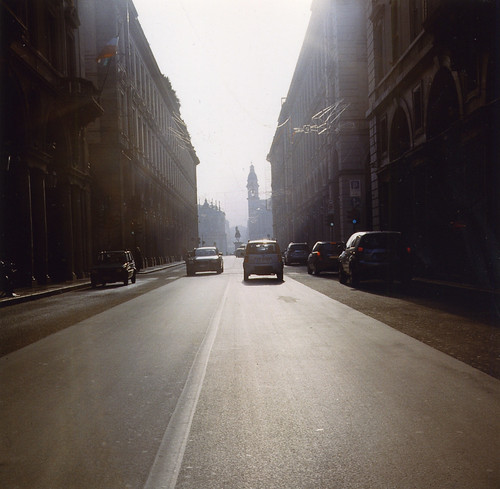The other side of an absence of sense
by Steve

“One April afternoon, right after lunch, my husband announced that he wanted to leave me.” So begins The Days of Abandonment by Elena Ferrante. The book chronicles what follows for those left behind, the wife, the two children, the dog, from the perspective of the wife, Olga.
“He told me that he was confused, that he was having terrible moments of weariness, of dissatisfaction, perhaps of cowardice.” There is then talk from the husband, Mario, of an “absence of sense”.
There are already plenty of tales out there from Mario’s perspective. There is no shortage of books and stories about a relationship breaking down and the man’s weariness, dissatisfaction, cowardice, absence of sense. But The Days of Abandonment shows that tale to be far less interesting, less illuminating, than the tale of those left behind, of those left abandoned.
It is not an easy read. Olga falls apart and then slowly recovers. I’m not sure I’ve ever read such a clearly rendered picture of a breakdown and what happens next. Each short chapter says more to me than any whole book about the man who walked out. This is where the humanity is. This is the real story to be told.
Olga is not always particularly likeable. Neither are her children. Or her dog. But that makes them all the more human. Suffering doesn’t always make us more appealing. There is a selfishness in grief and pain. Abandonment doesn’t always make us a better person. Yet this is hardly an advert for those that abandon either.
The book charts the complexities of our emotions when things go wrong, and how we are all capable of being pretty horrible people. However, it doesn’t suggest that this is the end point. There is hope and there is kindness. While we don’t become perfect, while what doesn’t kill us doesn’t necessarily make us stronger, we can recover. We might learn. Might not.
The Days of Abandonment is sparsely, yet beautifully written. Within Olga’s ruminations there is space to mull over who we are as men and women, husbands and wives, parents and children. There is a space to consider how much we are a product of our parents and our partners, and how far we are our own people. A space to consider how the people closest to us may have made us, but can also, well, break us. Or that perhaps they cannot break us, that only we can do that to ourselves. And who we are anyway? I’m not sure.
Ferrante raises some pretty uncomfortable issues, asks some difficult questions. These issues and questions go well beyond divorce or breakdown. It taps into the fundamentals of being a human being. It made me wonder, it continues to make me wonder, just what sort of human being I am, or was, or could be. I think this is what great writers can do.

Excellently written review and certainly makes me want to read this book myself too. Thanks Steve.
LikeLike
Thank you, always nice to hear feedback like that!
LikeLike
I haven’t had much luck finding Vulgar Things but I’m in luck with this one: there are a couple copies floating around the Denver library system. I have it on hold. Great review. I’m excited to read it.
LikeLike
Thanks Mike. I hope you like it, although it is brief enough to not take up too much of your time. There seems to be a lot of fuss around Ferrante lately, but the hype seems to hold up.
LikeLike
Speaking from experience, being abandoned is horrific. It causes you to doubt and question everything, both internal and external, and plant land mines ready to be triggered for years to come.
LikeLike
Yep, it is not fun. I think that is what makes this book so important – it doesn’t flinch from the implications of abandonment, and the vulnerabilities we all have. Thanks for stopping by and commenting, really appreciate it.
LikeLiked by 1 person